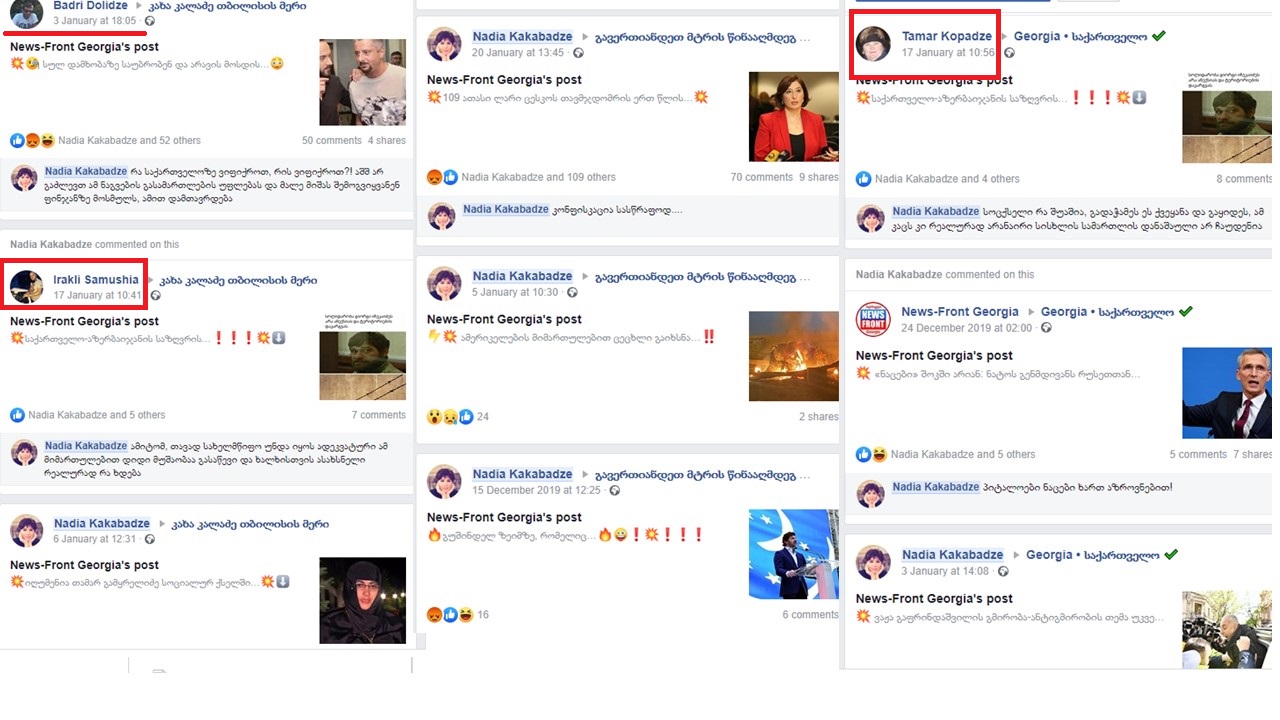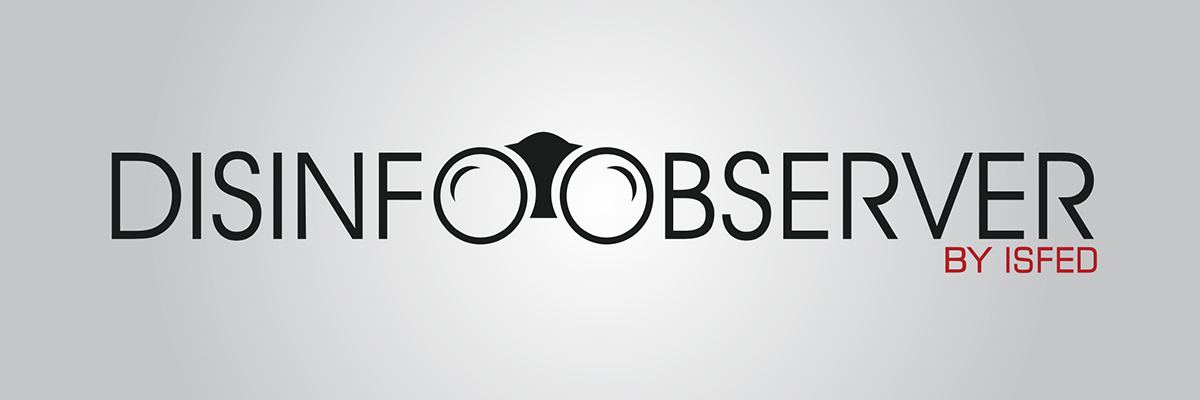ISFED Strives to Safeguard Information Environment on Facebook Ahead of Elections in Georgia

The manipulation of the information environment has been a powerful tool for undermining democratic principles and electoral integrity around the world. Disinformation – the deliberate production and sharing of false information to manipulate opinions and cause harm – is not new, but modern information technology and platforms encourage the spread of disinformation in ways that have not been seen before. Disinformation in the electoral environment undermines key democratic principles such as a competitive process, public confidence in the electoral institutions, and informed participation. In Georgia, the International Society for Fair Elections and Democracy (ISFED) has been monitoring disinformation and coordinated inauthentic behavior on social media since the 2018 presidential elections and will continue its monitoring in the lead up to the October 2020 parliamentary elections. In addition, ISFED has been engaged in social media monitoring in between the electoral cycles.
In a series of blog posts published in late April and early May, ISFED released findings from its social media monitoring effort on Facebook on News-Front Georgia, a pro-Kremlin network whose misleading content was spread in 31 open Facebook groups with over 520,000 members. ISFED and Facebook had been in touch in the lead up to ISFED’s public reporting. The first blog post, which uncovered the network of coordinated fake media accounts on the platform, coincided with Facebook’s removal of News-Front’s pages, its administrator, and the 12 inauthentic profiles that were used to disseminate manipulated information. The blog post detailed how these accounts had coordinated and disseminated targeted information so as to encourage polarization and division among Facebook users in Georgia:
“News-Front and inauthentic accounts that acted in coordination with News-Front were employing a range of tactics to spread anti-Western, pro-Russian messages and create inauthentic interaction in order to mislead Facebook audiences.”
ISFED’s second blog post revealed the history of News-Front’s associated accounts’ engagement around important political developments in Georgia such as the 2018 Georgian presidential election and pension reforms in 2019. A third blog post exposed how the coordinated network of accounts associated with News-Front were used for information operations in favor of the Pension Agency and the Central Election Commission. Together, ISFED’s reports and findings uncovered an active disinformation network operating on social media in Georgia and are one example of the challenges that disinformation poses to electoral integrity.

ISFED has continued to monitor suspicious Facebook activity, including fake news and disinformation, as part of its ongoing social media monitoring efforts. They found that additional Facebook pages were used to manipulate information through sponsoring of other posts “in order to target a broad audience with selective information.” ISFED also uncovered local self-government bodies that used official Facebook pages to spread the information favoring the current ruling party in Georgia. ISFED has recently revealed additional CIB networks including one operating in favor of Alliance of Patriots of Georgia, an opposition party, and another one linked with an organization Alt-Info spreading the divisive (anti-liberal, anti-immigration, anti-LGBTQI) narratives.
More recently, on June 29, 2020, ISFED, GNDEM member Georgian Young Lawyers’ Association (GYLA), and 46 other Georgian civil society and media organizations sent an open letter to Facebook requesting increased transparency measures on the platform among continued attempts of political groups and foreign actors to undermine the election environment on Facebook. Among the requests, the CSOs called for Facebook to make their Ad Library and API available as soon as possible for the upcoming October elections and to increase cooperation with credible civil society organizations around fact checking and social media monitoring. The letter also requested for Facebook to prohibit placing political ads from foreign countries, for implementation of a ban against micro-targeting of political ads, for more prominent fact checking labels, and for a strengthened effort from Facebook to identify and remove CIB and later to inform subscribers of a page of its removal.
In a crucial step toward political advertisement transparency in Georgia, Facebook replied to the letter on July 15th with promises to strengthen transparency of the information environment for the upcoming Georgian election. Facebook promised that its Ad Library would become available in Georgia in August, that authorization would be required for election and political ads, and that it would limit placing foreign ads. ISFED shared Facebook’s response here. ISFED is using the Political Ad Library, which became available in Georgia on August 7th, to analyze trends in paid political advertisements, expenditure reporting by political parties and candidates, and ads that had not been declared as political advertisements in a recent report. In mid-September, Facebook announced that it would expand its third-party fact checking program to Georgia starting from end of September, involving two local civil society groups. The initiative includes reviewing the content, identifying false news, labeling misinformation and informing the users, ensuring that fewer people see it, and taking action against repeat offenders. Facebook has met another request of the joint advocacy by ISFED, GYLA and other Georgian CSOs.

In June, ISFED also launched the Disinfoobserver portal as an interactive platform with access for citizens to report and monitor suspicious Facebook pages, including pages that are engaged in discrediting campaigns, spreading disinformation and manipulated information or other harmful behavior. Citizens can also submit any pages for ISFED review over concerns of suspicious activity, fake news or inauthenticity and browse pages ISFED is tracking. ISFED continues to monitor disinformation on social media and update the portal platform, a positive step to improve information transparency around the October 31 parliamentary elections. In addition to their ongoing monitoring and continued engagement with Facebook, ISFED is also liaising with other civil society organizations in Georgia to advocate for greater transparency measures on the platform.
As the world becomes increasingly focused on and influenced by technology, groups like ISFED and others who monitor social media and take action to limit the spread of disinformation through social media platforms will become even more critical to maintaining information transparency and electoral integrity.
 GNDEM
GNDEM